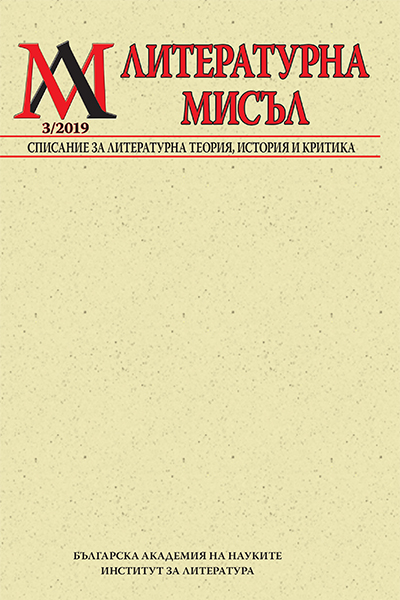Билингвизмът и българските авторки от 19 век: Рахил Душанова, Екатерина Василева, Богдана Хитева
Bilingualism and Bulgarian women writers from the 19th century
Author(s): Nadezhda AlexandrovaSubject(s): Language and Literature Studies, Cultural history, Foreign languages learning, Gender history, Translation Studies
Published by: Институт за литература - БАН
Keywords: types of bilingualism; women writers; women education; translation; memoirs
Summary/Abstract: The article regards the advantages and setbacks of being bilingual when it comes to foreign women teachers and writers who contributed to the Bulgarian national project from the 1860s to the 1920s. They are the Serbian teacher Rahil Barak Dushanova (1845-1888), the Czech teacher and journalist Bogdana Iraskova Hiteva (1844-1929), and the second-generation Bulgarian émigré in Romania Evgenia Mihailova Vassileva (1852-1926) who was a poet, journalist, and writer. First, the article distinguishes the types of bilingualism for each case, attributing a coordinate type to the women teachers Bogdana Hiteva and Rahil Dushavova, and a subordinate one to Ekaterina Vassileva, who did not feel convenient in Bulgarian and wrote her texts in Romanian or French. Then the paper follows the biographical path of each of these women in order to distinguish whether her positioning in the receiving country displays a strategy of adaptation and inclusion into Bulgarian social and cultural life, and at what cost it was achieved. However, as it concerns the Bulgarian literary history, the identity of a bilingual woman writer has fewer chances for posthumous inclusion into the literary canon due to her unstable and transitive identity. The conclusion of the paper is that those women who managed to claim sufficiently their newly achieved and sustained Bulgarian identity have better chances for future remembrance. Yet, large parts of their writings need the application of a new and non-nationalistic perspective, which could acknowledge better their specific contribution to both Bulgarian literature and that of their birthplace.
Journal: Литературна мисъл
- Issue Year: 62/2019
- Issue No: 3
- Page Range: 57-71
- Page Count: 15
- Language: Bulgarian

